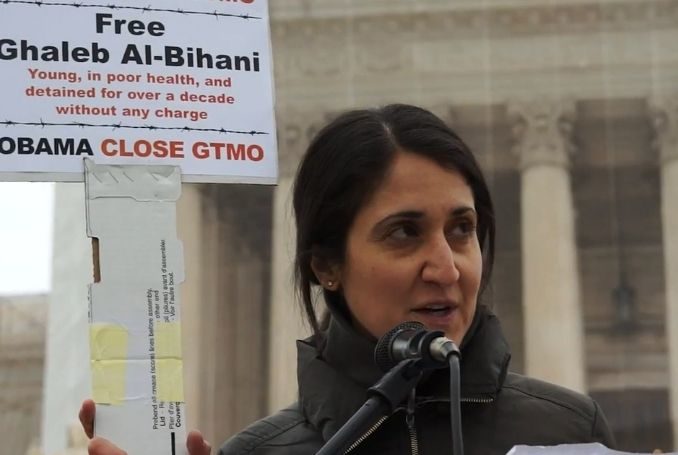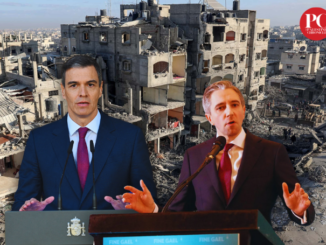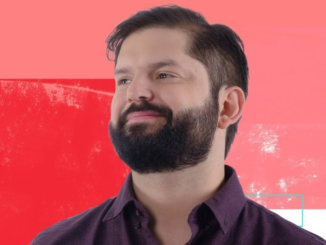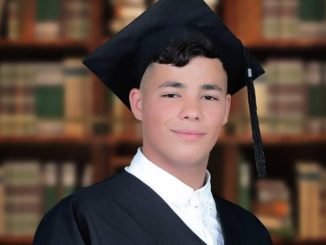
By Benay Blend
The late historian Howard Zinn once said that sometimes there are not two sides to a question.
In A People’s History of the United States (2003), Zinn writes that one reason that “atrocities are still with us is that we have learned to bury them in a mass of other facts.” He continues:
“We have learned to give them exactly the same proportion of attention that teachers and writers often give them in the most respectable of classrooms and textbooks. This learned sense of moral proportion, coming from the apparent objectivity of the scholar, is accepted more easily than when it comes from politicians at press conferences. It is therefore more deadly”.
While Zinn agreed that it is necessary to understand why one side behaves in a certain way, there are times when one position carries more moral weight than the other. “The cry of the poor is not always just,” he remembered reading, “but if you don’t listen to it, you will never know what justice is” (A People’s History, p. 10).
In the case of Israel/Palestine, there are not two morally equal sides between the occupier and occupied. There is but one narrative, the attempted crushing of a population who nevertheless survives by telling its own story.
Focusing on the recent censuring of film-maker Mohammad Bakri, Ramzy Baroud declared that “to those familiar with the massive clash of narratives which emanated from that singular event, known to Palestinians as the ‘Jenin Massacre’, the Israeli court verdict is not only political but historical and intellectual, as well.”
Indeed, Israel has a long history of silencing those who challenge the official story. In order for that history to have validity, Palestinians, the original inhabitants, must be erased, or at the very least should be portrayed as the aggressors.
For example, on January 31, 2021, Israeli forces “neutralized” a Palestinian man in the Occupied West Bank in response to an alleged knife attack against soldiers south of Bethlehem. Over the past year, several such incidents occurred: Palestinians killed by Israeli fire in response to alleged attacks, when over and over again the lack of a weapon points to a fabricated story.
“A Palestinian people with a coherent, collective narrative will always exist,” concludes Baroud, “no matter the geography, the physical hardship and the political circumstances. This is what Israel fears most.”
For years Palestinian journalist Rima Najjar has proven this is true. For example, Dr. Najjar has “been trying to normalize anti-Zionist, anti-Israel speech through [her] writing and social-media activism.” Her work has drawn the ire of various Zionist groups, first when she was banned from Quora for using the term “Zionist” in a way that they termed “hate speech,” and more recently by a band of Christian Zionists who push the International Holocaust Remembrance Alliance (IHRA) definition of antisemitism into US law. The latter are trying to cancel her Medium account by labeling her writing as “hate speech.”
“Their campaign of silencing won’t work,” she writes,
“because just as Palestinians are resilient, those of us advocating for justice in Palestine are powerful as a collective, and we will not allow ourselves to be silenced. Nor will we engage in attempts to silence sinister groups such as the ones I mention above; instead we will call them out for their bigotry and tyranny and not allow them to appropriate our message.”
In this way, again, there are two competing narratives, one that attempts to cancel out the other because it lays waste to the Zionist’s antihistorical story of land without a people for a people without a land.
In Lafayette, Louisiana, a variation of this tale unfolds. Writing for The Acadiana Advocate, Claire Taylor explains that members of the Lafayette Parish Library board rejected a grant to fund books, two speakers and a discussion on voting rights history because they considered the speakers “extremely far left.”
One of the speakers, Theodore Foster, assistant professor of African American history at the University of Louisiana at Lafayette, said that he found the vote “disappointing given the history of African Americans and voting rights.” Moreover, he continued, “It speaks to a larger anti-intellectualism that we’ve seen across the country that would seek to restrict access to broaden the public’s literacy about the right to vote.”.
At issue behind the decision were several concerns. Not presenting “both sides” of the matter, members said, could further damage the library’s image after community concern over a proposed drag queen storytime event in 2018-19. At that time too, there was worry that both sides were not being represented.
Granted, public spaces depend on public funding, so if the community feels that it’s not speaking for their interests, the library might lose funds. What’s at stake, though, is whose community is represented? The Black community? The “majority conservative” community? Apparently not the former, because in both cases it appeared that their voices were not heard.
“The series, developed by the LEH, is intended to engage members of the general public in conversations on the history of voting — and efforts to suppress the vote — in the United States,” according to the grant application. One library board member, who had also protested against drag queen storytime, declared that “these two speakers are extremely, extremely far left leaning. They’re not going to represent the other side.”
“My only request, for the image of the library,” she concluded, “was to make sure it’s apolitical and it’s not.”
When one side of history is buried—whether in Louisiana or in Occupied Palestine—the oppressor clearly wins. Moreover, how does an institution present both sides of a topic like voting rights, when the other side would be the conservative majority who want to maintain the status quo? How could that ever be apolitical?
Not all competing narratives are so clear-cut. Sometimes the conversation leaves room for grey zones, areas in which two more conflicting versions of a story might seem real.
For example, in “The Devil’s Advocate,” a documentary about three attorneys who defend people accused of terrorism against the United States, criminal defense lawyer Stanley Cohen explains that the difference between a terrorist and a freedom fighter often comes down to the fact of who wins.
Produced by Habiba Nosheen and Hilke Schellmann, the film documents three defense lawyers who might themselves be labeled traitors for defending individuals who the government believes have committed heinous crimes.
Nevertheless, Stanley Cohen, who represented Osama bin Laden’s son-in-law, rejects the notion of calling some crimes terrorism. By defending people’s right to speak up for themselves, he reiterates Dr. Najjar’s determination to “normalize” her criticism of Israel’s crimes. By walking into court wearing a keffiyeh given to him by Yasser Arafat, a gesture that he hopes will remind the world of injustice done to Palestinians, Cohen also makes clear what side of history he is on.
In 2015, Stanley Cohen entered Federal Prison Camp-Canaan in Waymart, Pennsylvania, to serve an 18-month sentence for “impeding…,” a term that his blog defines as “a sort of government catch-all charge when all other attempts to destroy an individual’s life/career fail.”
While there he began a blog entitled “caged but not undaunted,” perhaps a catch-all phrase, too, for the other voices included in this article. There are many ways to be caged—in a prison, in the concentration that now is Gaza, or in a battle against seemingly insurmountable forces that hold the power.
In many of these cases, there are not two morally equal sides, but instead the voices of those like Cohen who remain undaunted in their struggle for social justice.
– Benay Blend earned her doctorate in American Studies from the University of New Mexico. Her scholarly works include Douglas Vakoch and Sam Mickey, Eds. (2017), “’Neither Homeland Nor Exile are Words’: ‘Situated Knowledge’ in the Works of Palestinian and Native American Writers”. She contributed this article to The Palestine Chronicle.

– Benay Blend earned her doctorate in American Studies from the University of New Mexico. Her scholarly works include Douglas Vakoch and Sam Mickey, Eds. (2017), “’Neither Homeland Nor Exile are Words’: ‘Situated Knowledge’ in the Works of Palestinian and Native American Writers”. She contributed this article to The Palestine Chronicle.







